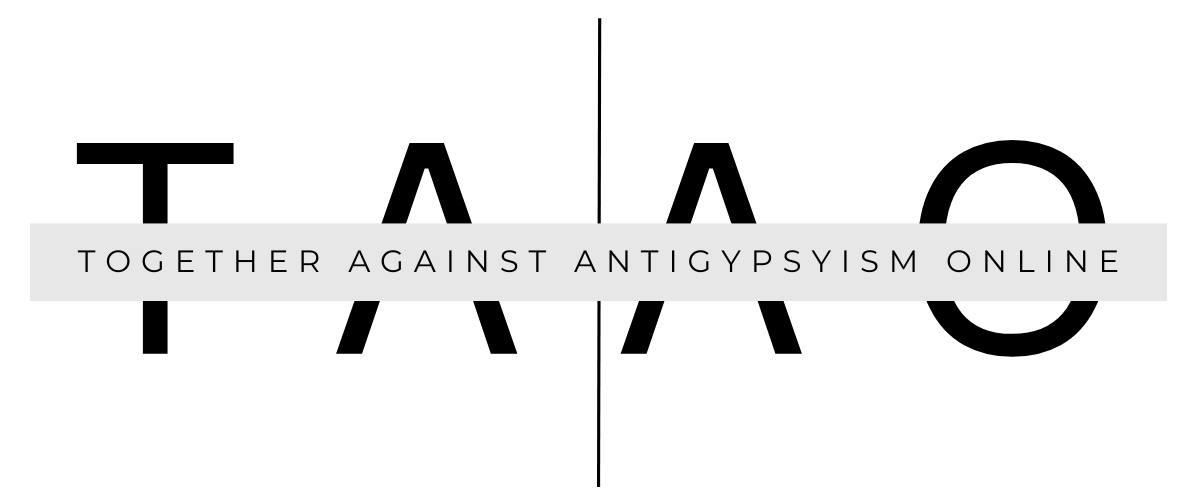This project contributes to the priority area of protecting EU values and rights by combating hate crime and hate speech, especially focusing on combating online hate speech against Roma.
According to the Fundamental Rights Agency, 1 in 3 Roma are victims of harassment and 20% of non-Roma would not like to have a Roma colleague. As identified in the EC Communication ‘Midterm review of the EU framework for national Roma integration strategies’ (2017), antigypsyism goes beyond the legal notion of discrimination. In essence, antigypsyism is the root cause of exclusion of Roma people. It has many different dimensions and manifestations, including hate-speech in public, media and political narratives, expressed stereotypes, hate-crime, discrimination in school, employment, health and housing and structural antigypsyism”.

In the previous EU Roma Framework (2011-2020), very little progress for Roma inclusion has been achieved, and it has become a consensus among EU policymakers and civil society that fighting antigypsyism by targeting majority society is a pre-condition for the success of any Roma inclusion intervention. Therefore, the fight against antigypsyism is at the core of the current EU Roma Strategic Framework for Equality, Inclusion and Participation up to 2030 and the corresponding Council Recommendation.
Hate speech as a manifestation of antigypsyism needs particular attention because of its multiplier effect: it influences public opinion, fuels tension and paves the way for discrimination and hate crimes. Online media plays a particular role in spreading and inciting hate speech. It strengthens stereotypes, uses offensive language, denies or trivialises antigypsyism. Through social media hate speech reaches millions of people and allows perpetrators to anonymously incite hatred and violence. Very often, hate speech online trigger offline hate crimes. “Hate speech and hate crime affect not only the individual victims and their communities, causing them sufferance and limiting their fundamental rights and freedoms, but also society at large. Hate undermines the very foundations of our society. It weakens mutual understanding and respect for diversity on which pluralistic and democratic societies are built” (European Commission Communication “A more inclusive and protective Europe: extending the list of EU crimes to hate speech and hate crime”, 2021).
The 10-12 Million Roma living in Europe are the most discriminated ethnic minority in our region. During the last years, hate speech against Roma increased even more in light of the Covid-19 pandemic (“Roma as super spreaders of the virus”, see ERGO Network report on Covid-19) and the war in Ukraine (“Roma refugees as taking advantage of social benefits”). Addressing online hate speech against Roma will contribute to their right to dignity and non-discrimination, while at the same time protecting the right to freedom of expression for everyone.
Antigypsyist hate speech, as a form of racist and xenophobic hate speech, is already defined as illegal under an EU Council Framework Decision of 2008. However, very little is known about the phenomenon of antigypsyist online hate speech, and very little has been done to combat this specific form of racism online until now.
The project will contribute to the fight against online hate speech in several ways:
It will provide essential data and a categorisation system for online hate speech from 6 countries, including on triggers, extent, reach, impact, authors and recipients of and reactions to hate speech, that can inform better policy implementation and practical measures.
It will raise awareness of the reach and impact of antigypsyist online hate speech among wider civil society as well as online content creators (journalists and social media content creators) and promote a changed narrative on Roma online.
It will inform Roma and non-Roma young people on the possibilities of reporting hate speech and encourage more Roma CSOs to become trusted flaggers for social media platforms.
It will establish partnerships between actors relevant for the fight against online hate speech in six EU Member States and strengthen partners’ focus on antigypsyism online.
The project will have an impact by targeting three distinct groups of people: Policymakers, multipliers and young people.
Policymakers: As advocacy experts, we will work with policymakers on national and EU level and support their work through our data and grassroots experience in order to inform more effective policies and strengthened policy implementation.
Multipliers: We will work with journalists, social media content creators, but also other civil society organisations with large constituencies so that they contribute to changing the narrative on Roma online and influence their audiences.
Roma and non-Roma young people: We see in young people our allies who are tech savvy and aware of rights violations and will be able to support the reporting of hate speech online.
The reference to ‘Roma’, as an umbrella term, encompasses a wide range of different people of Romani origin such as: Roma, Sinti, Kale, Romanichels and Boyash/Rudari. It also encompasses groups such as Ashkali, Egyptians, Yenish, Dom, Lom, Rom and Abdal, as well as traveller populations, including ethnic Travellers or those designated under the administrative term gens du voyage and people who identify as Gypsies, Tsiganes or Tziganes, without denying their specificities (European Commission, 2020).
Work plan
The project is structured into 5 distinct, but interconnected work packages. Each one contributes to the achievement of the overall project goals, and the outcomes of each support activities in the other work packages.
WP 1: Project management and coordination: To ensure the smooth implementation of the overall project
WP 2: Hate speech monitoring: To develop the monitoring methodology, collect and categorise at least 3,000 cases of antigypsyist hate speech and analyse the data
WP 3: Partnership and advocacy: To ensure that the fight against antigypsyist online hate speech is joined by all relevant stakeholders and our recommendations are taken on board by policymakers and practitioners.
WP 4: Capacity-building: To empower more activists, content creators and civil society to contribute to the fight against antigypsyist online hate speech through reporting, counter-speech and a change of the narrative on Roma.
WP 5: Outreach and visibility: To share our results with a maximum number of people in the relevant target groups.